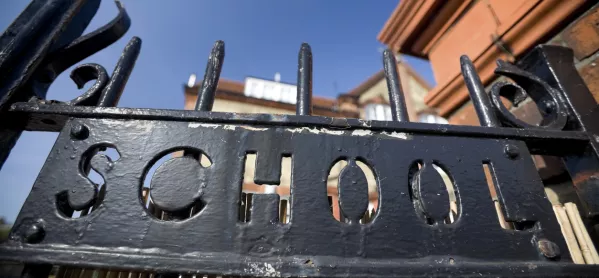Teachers might need to do an additional two or three hours’ tuition per week over a school year to make up for lost learning time during lockdown, according to new research.
And in some schools, pupils may need many more hours than is feasible to recover lost learning time.
Related: Study to probe impact of school closures on coronavirus
News: Schools must start thinking about how to reopen
Coronavirus: ‘Stop speculation about schools reopening’
The study - Covid-19 school shutdowns: what will they do to our children’s education?, from the Centre for Economic Performance at the London School of Economics - found that school closures in response to the coronavirus pandemic had opened up a “chasm” between disadvantaged pupils and their peers.
School closures would be less detrimental for pupils in high-performing schools, with strong levels of parental involvement, than for their less advantaged peers, the study found.
The study pointed to research showing that a school closure of four weeks would result in an equivalent learning loss of “moving a middle-ranking child down to the bottom 30 per cent of children”.
It also referenced the Organisation for Economic Cooperation and Development’s 2020 Programme for International Student Assessment (Pisa) analysis of the 2018 data, showing wide disparities in pupils’ levels of access to online learning, with 40 per cent of disadvantaged pupils able to access online learning platforms compared with 70 per cent of their more advantaged peers.
The study cited research showing that in order to compensate for learning lost during school closures, “well over two additional hours per week might be needed”, although less might be needed in “developed countries with more ‘autonomous’ school systems, like that of England’s academy schools”.
Another study suggested that schools would need to add many hours to the school calendar to compensate for time lost, and that this was “likely to benefit those already in better schools”, as the advantages differed by how good the school was.
Some schools might need many more hours than was “feasible”, and it added that increasing resources without increasing teaching time would cost around £3.4 billion to make up for lost learning time for pupils in key stage 2.
It found that the direct cost of school closures in England was around £1 billion per week, basing this figure upon the annual government education budget of £50 billion.
Professor Stephen Gibbons, director of the CEP’s urban and spatial programme, said: “Closing schools will have an impact on pupils’ achievement and the costs of putting this right are likely to be high - and this is without taking into account the mental and physical toll on children of being in lockdown.”
Andy Eyles, research economist, said: “It is clear that children from more advantaged backgrounds attending schools where technology is in place to substitute for classroom teaching, and whose parents have both the time and skills to plug the deficit, are likely to be less adversely affected by the closures than others.”
Piero Montebruno, research economist, said: “School closures are a manifestation of a new equilibrium of forces in educational economics.
“The reverse effect of congestion has replaced the normal benefits of agglomeration. Before the outbreak, gathering together at a school was a big plus for children; now it can cause the transmission of a potentially fatal disease. The key question is how we, as a society, resolve the equation of providing an education for our kids while the virus remains with us.”





